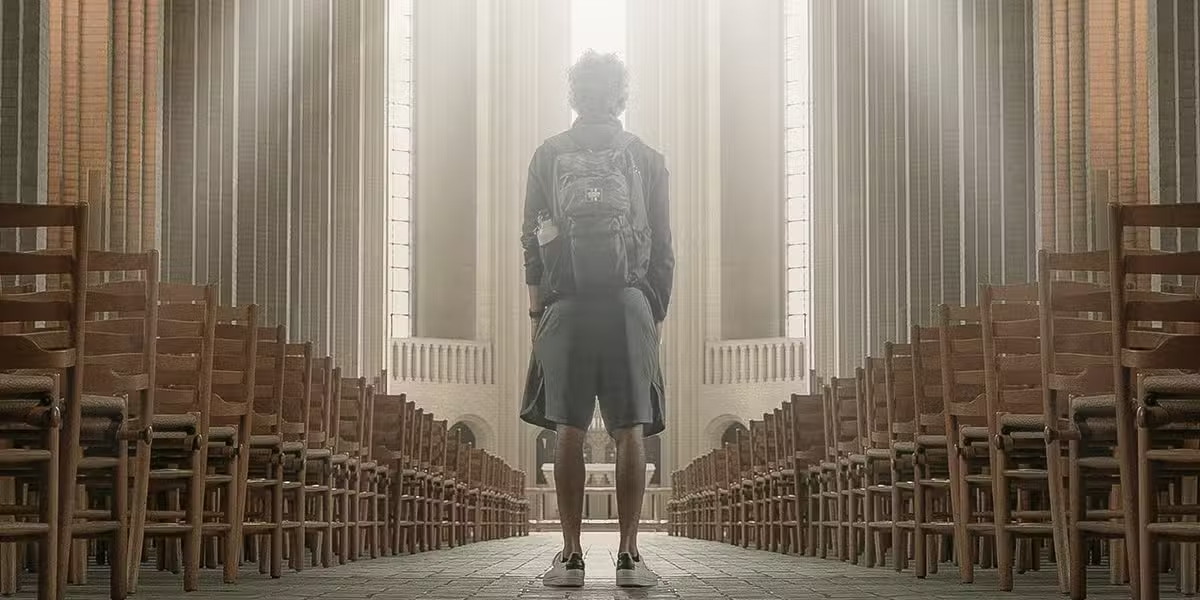If you asked the average Catholic whether he or she had any influence on the Church, chances are the person would say no. That is why Pope Francis has convened a Synod of Bishops on the topic of synodality, running from October 2021 through October 2024. This synod is probably the most all-encompassing and inclusive one to take place. And that is exactly what the pope wants.
Before we get into why this gathering is so important and groundbreaking, though, let’s back up a little. Many Catholics may not even know what a synod is. They may not be clear on what such a gathering has to do with the Church and their faith, or how they play a part.
Laying the Groundwork
First off, a synod is a gathering of the faithful to listen to what the Holy Spirit is calling the Church to be and do. Coming from the Greek word synodos, it generally means “walking together.” Usually, synods are reserved for bishops and Church hierarchy. They can address any number of issues facing the Church.
This time, the topic is synodality. Synodality is a style, a culture, a way of thinking and being, that reflects the truth that the Church is led by the Holy Spirit, who enables everyone to offer their own contribution to the Church’s life. In announcing the synod, Pope Francis said it this way: “Synodality is not a chapter in an ecclesiology textbook, much less a fad or a slogan to be bandied about in our meetings. Synodality is an expression of the Church’s nature, her form, style, and mission.”
And, according to Pope Francis, the concept is something that is sorely missing from today’s Church.
From the beginning, the pope has made it clear that this was a discussion for everyone in the Church. From October 2021 to October 2022, millions of Catholics from around the world were asked to speak up and have their voices heard. Listening sessions and discussions took place in parishes and dioceses. No topic was off the table—women’s ordination, LGBTQ+ issues, divorce and remarriage, and any other that was weighing on the hearts of Catholics.
Those discussions, according to some dioceses, did not include many of the people the Church needs to reach out to. The fruits of those discussions and listening sessions were then compiled by the various regions and sent to the Vatican in preparation for this October’s gathering. The summary from the North American region noted: “People ask that the Church be a refuge for the wounded and broken, not an institution for the perfect. They want the Church to meet people wherever they are, to walk with them rather than judge them, and to build real relationships through caring and authenticity, not a purpose of superiority.”
Acknowledging that something this important and expansive would take time, Pope Francis expanded the synod until October 2024 to allow for the discussions to bear fruit.
An Ongoing Conversation
Already, the synod has borne some fruit—even before this first session. There are more women in positions of influence than ever before. Discussions on tough topics facing the Church are being had. Practices are being questioned and explanations are being asked for. Yet the work is only beginning. The process of this synod is expansive. It can be easy to get caught up in and confused by the process. But one thing is clear. We are all a vital and necessary part of this process, and this is the moment for us to speak up and make our voices heard.
But there is still work to be done. The synod process thus far has lain bare many things that Catholics feel need to be addressed. And we have found our voices. Now, let’s all journey together, wherever the Holy Spirit may lead us.









3 thoughts on “Editorial: Not Your Average Synod”
For me the church is way too out of touch on many things. Do we still believe that the Earth is the center of the universe? Of course not. But the church has latched on to teaching from Augustine or Aquinas like it is cast in stone. That is not to say we throw everything out, but instead of trying to defend their every word, the church should stand back and look at recent and continuing developments in areas like psychology to understand things like ptsd and suicide, and different reasons why women can get abortions rather just limited to the health of the mother. And so many other issues. That is not to say science is perfect and trumps everything else but it must be considered. I have read the 4 gospels at least 20 times and no where have I read anything taught by Christ that the church seems to have a need to pontificate on. He seemed to be concerned with issues of the day like defending women, of feeding the hungry, or healing people with various physical and mental disorders rather than condemning people and finding sin virtually everything. By the way I must receive 10 requests every week from the church for money: bishops in Alaska and down south, nuns from Wisconsin, CRS, CMMB, Franciscans from a Padre Pio church wanting to sell me oil that touched a 1st class relic of the saint, among others. A real money making machine, Every diocese has its issues for money and should be our first consideration. Lastly, how could the church justify spending about $100 million to purchase the Crystle Cathedral and earthquake proof it? Fr. Pacwa of EWTN can see Disneyland from his office high aloft. Isn’ t that nice!
This synod for me is about liberal Catholics wanting to listen to liberal priests, and bishops talk about how wonderful they are in the “spirit” and how terrible “faithful” CatholicS have been, currently are, and they should throw them out of our churches or at the very least shame them into submission. This synodality is about listening to those we wish to hear. (ONLY)
Thank-you St. Anthony Messenger for publishing some information about the Synod . So many Catholics know nothing about it . It’s time to educate American Catholics about this four year process of the world -wide Church, with the invitation to listen, share, and “give voice” to the
Spirit in our midst . Yes, a synod invites conversation, renewal, and change. It is not a new practice . Be not afraid. “Behold, I make all things new.!” (Revelations 21:5)
Deedee
PS.
Might you also consider follow up articles with websites where people can learn more? Thanks again